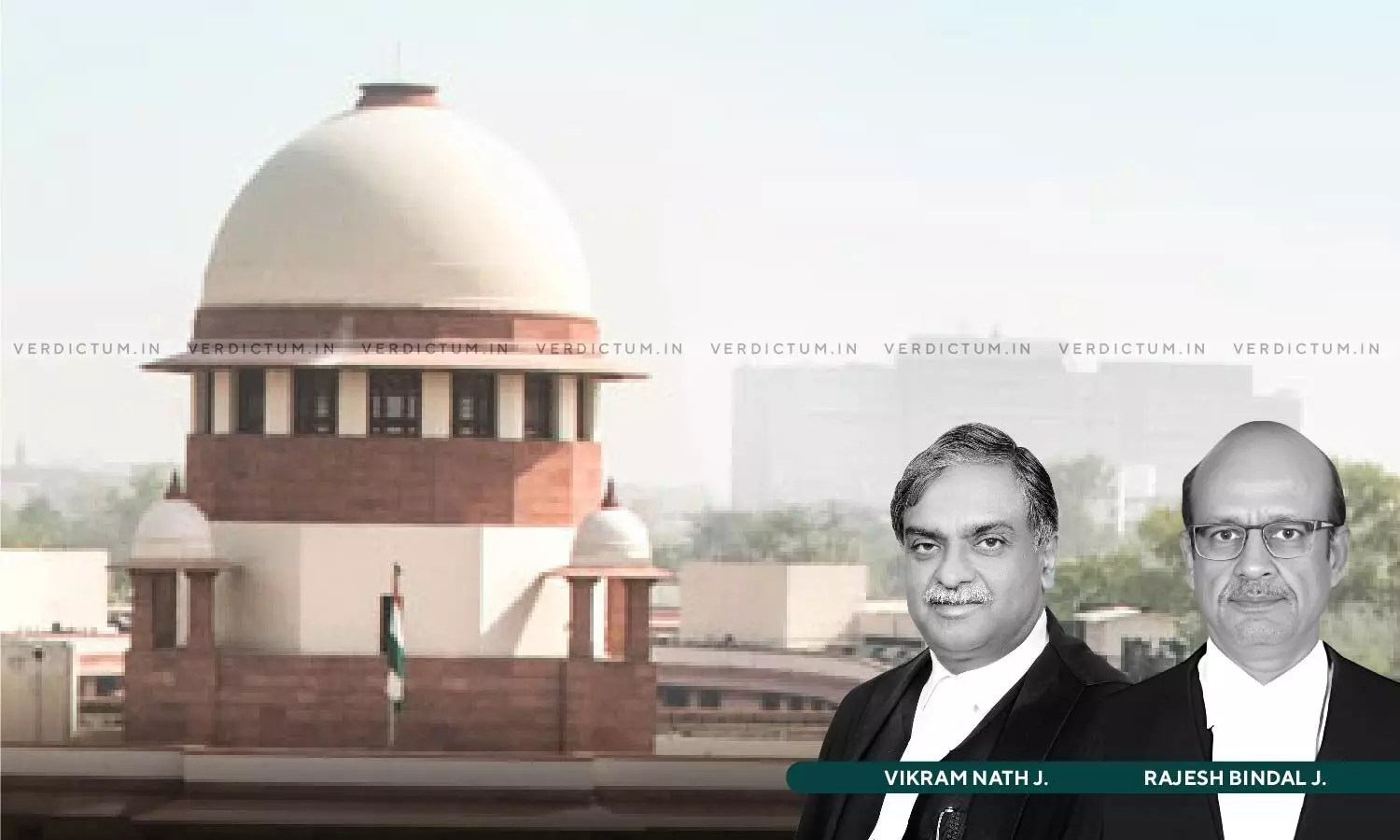
'Appellant Seems To Be Too Greedy': SC Upholds Dismissal Of A Suit Filed 50 Years Ago
 |
|The Supreme Court recently upheld dismissal of a suit filed in 1972.
The court suggested that challenging a sale deed from 1956 after 16 years might be an attempt to extract more money from the State.
The successor-in-interest of the plaintiff was challenging a judgment of the High Court in Second Appeal. The original lawsuit was filed by the predecessor-in-interest of the appellant, (now deceased), challenging a sale deed executed by his father. The first sale deed was for a significant piece of land, part of which was later sold to the State of Punjab (now in Haryana).
A two-judge Bench of Justice Vikram Nath and Justice Rajesh Bindal held, “we find the suit to be totally mis-conceived. There is no document placed on record by the plaintiff showing his right in the property as on the date when Gurinder Singh 7 (deceased) got the first sale deed registered in favour of deceased-Sukhjit Singh, who is trying to derive title only from the recital in the first sale deed that the property is being sold as a guardian of the minor. There is no pleading or document produced to show that the property in question was ever transferred in his name, in a family partition and the corresponding shares of other daughters and sons of late-Gurinder Singh.”
Advocate M.T. George appeared for the Appellant and Advocate Alok Sangwan appeared for the Respondents.
The appellant's argument revolved around the contention that the High Court's finding regarding deceased’s date of birth was erroneous. They presented a certificate from Doon School, Dehradun, which, if considered, would render the suit not time-barred. The appellant asserted that the sale of the land by his father, without court permission and not for the minor's need and welfare, was rightfully set aside by the Trial Court and the first Appellate Court.
On the other hand, the State argued that the litigation was dishonest and an attempt to extract more money from the State. They claimed that other sale deeds were registered similarly, and the consideration for the land sold to the State was duly paid.
The Court, after hearing both parties, acknowledged the dispute over his date of birth but ultimately found the suit to be misconceived. It noted the absence of any document proving the plaintiff's right to the property and suggested that the litigation, challenging a sale deed from 1956 after 16 years, may be an attempt to extract more money from the State. The Court said, “in our opinion, in a litigation of the type where a sale deed registered in 1956 was sought to be challenged after 16 years by the plaintiff may be to extract some more money from the State, which had purchased the same from the 1st purchaser.”
The Court dismissed the appeal, stating that there was no case for interference. Additionally, it mentioned the State's offer to pay more money to the appellant, which was rejected as excessively greedy.
The Court dismissed the appeal, emphasizing the lack of evidence supporting the plaintiff's claim and suggesting that the lawsuit may be an attempt to extract additional funds from the State.
Cause Title: Bani Amrit Kaur v. State of Haryana & Ors., [2023 INSC 1040]
Appearance:
Appellant: AOR M.T. George
Respondents: Sr. A.A.G. Alok Sangwan, AOR Samar Vijay Singh, Advocates Sumit Kumar Sharma, Rajat Sangwan, Vaibhav Yadav, Vishnu Tallapragada, Vipul Dahiya, Apoorv Yadav, Keshav Mittal, Sabarni Som and Anurag Kulharia
Click here to read/download Judgment